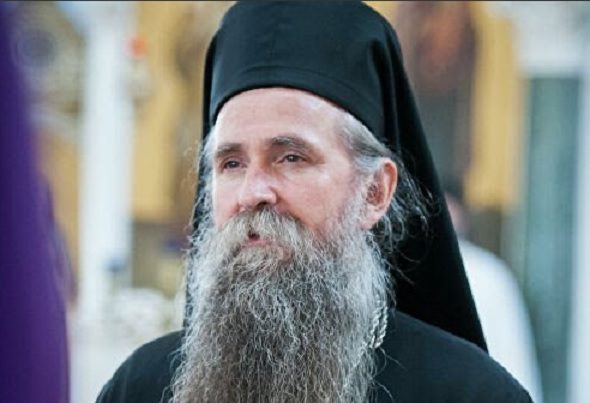Attempts to persecute the canonical Church in Montenegro did not stop with the defeat of the party of its main enemy, President Djukanovic, in the parliamentary elections. Let’s remind that the President of Montenegro considers the Serbian Church to be the main conductor of “Great Serbian imperialism” and “Russian influence”, writes “Labarum. Sim pobedishi”.
Montenegro International, an NGO close to Djukanovic, filed an application with the specialized prosecutor’s office of Montenegro in relation to the Montenegrin-Primorsky Metropolis of the Serbian Orthodox Church (SOC) and its administrator, Bishop Ioannikiy (Micovic). The reason for the statement was accusations of “allegedly concealing cases of pedophilia in the Serbian Orthodox Church, as well as alleged cases of bribery of minors in the monasteries of Cetinje and Dajbaba,” writes the Lucha portal.
The website of the NGO Montenegro International states that the organization is “an international think tank created primarily with the aim of preserving and promoting individual freedoms, the values of civil society, free markets, democracy, the rule of law, sustainable peace, harmony and prosperity, combating religious and ethnic extremism and nationalism ”. She “strongly supports the process of Montenegro’s integration into the EU, especially promoting strong cooperative relationships with NATO partners.” The NGO is funded by specialized grants from the US and the EU. Church matters are a priority in the activities of Montenegro International. For example, an NGO supported the publication of the book of the former SOC deacon Boyan Yovanovic “Confessions of how we killed God”. The description of the book says that the book is “a bitter testimony to the persecution and martyrdom of people who daily become victims not only of rapists and malefactors in robes, but also of the system that protects such people. On more than 430 pages, there is a lot of physical evidence that the system does not solve the most serious crimes committed under the auspices of the SOC. ”
The special state prosecutor’s office of Montenegro opened a criminal case on the submitted application. The Special Prosecutor’s Office, unlike the Prosecutor General’s Office, is a body created under the control of the EU and the US Embassy. It was there that the case of “attempted coup d’etat in Montenegro by agents of Serbia and Russia” was conducted, which fell apart this year. It was this body that the Government of Montenegro recently accused of blocking criminal cases against President Djukanovic. It was the attempts of the Government to displace the leadership of the Special Prosecutor’s Office that Brussels and Washington actively resisted.
“Such attacks on Vladyka Ioannikios are being made to discredit him, in order to reduce his chances of being elected to the cathedra of the Montenegrin metropolitan. Elections are expected at the upcoming Bishops’ Council of the SOC, which begins on May 24th. These attacks come from President Milo Djukanovic, who does not want to see an active and principled bishop as the Metropolitan of Montenegro. This was the late Metropolitan Amphilochius, and this is probably how Bishop Ioanniky will be, “said Labarum’s own source from Montenegro.
He noted that if the case had not been ordered, then it would have been dealt with by the ordinary prosecutor’s office.
“Of course, Vladyka has nothing to do with such crimes. On the contrary, he has always strongly opposed the concealment of such cases and was a supporter of the trial in the case of Bishop Basil (Kachavenda), who was removed from the pulpit, “added the interlocutor of Labarum in Montenegro.
Prior to this, accusations of pedophilia and sodomy had become a standard tool for anti-church campaigns and discrediting the conservative episcopate in Russia, Georgia, Serbia, etc. Speakers and organizations associated with the structures of the Patriarchate of Constantinople and / or American donors are most often the source of accusations.
